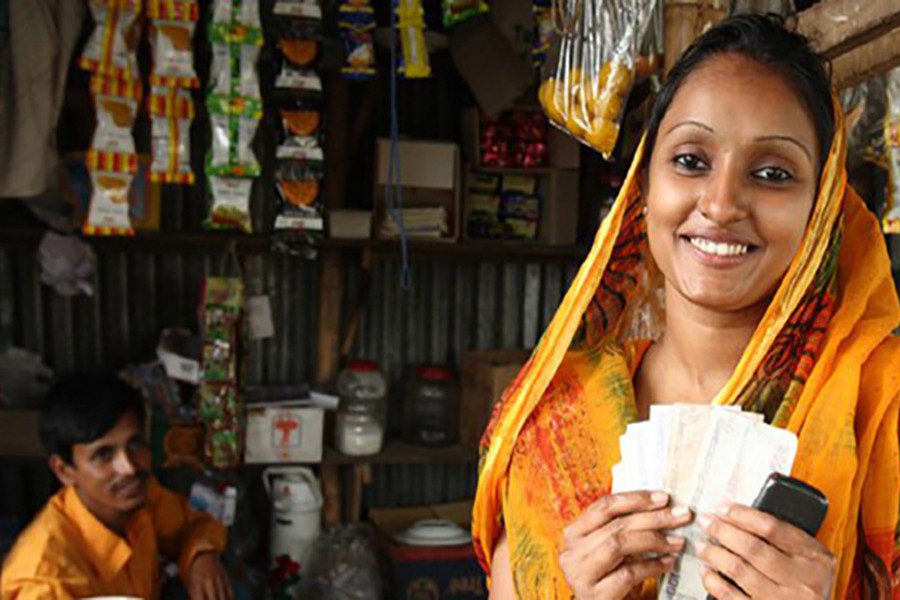Admittedly, Bangladesh's economic performance is laudable if not stellar. But the performance is uneven, exclusive and often discriminatory. From this point of view, any initiative to include people from all strata on the long road to economic development is most welcome. When the government, private entrepreneurs, non-governmental organisations (NGOs), multilateral organisations and donor agencies have all been expressly trying to contribute to the country's economic development, the kind of coordination expected of them is lacking. The bottom half of the population, in particular, does hardly count for financial inclusion in terms of their entrepreneurship. Now there is a move to put in place such a financial platform to be titled Financial Inclusion Network-Bangladesh (FIN-B). Its aim is to develop, share and disseminate knowledge and expertise in financial inclusion. All financial sector stakeholders, including microfinance institutions (MFIs), NGOs, local government and grassroots organisations will be brought together for sharing ideas and the best of practices from home and abroad.
Evidently, it is a sort of innovative step towards aligning financial institutions along the broad line of finance and investment. The most encouraging fact is the effort to pit microfinance institutions against banks and other large financial institutions. All will have a meeting point to know each other better in order to develop a rapport among them. It will be advantageous for all, including those working among people at the grassroots level, to highlight their plus points and argue for greater share of allocation and investment for economic programmes for the poor and the marginalised people. So long financially excluded by big financial institutions, the poor have amply proved that they are better borrowers than their affluent counterparts at the upper echelon in society.
The FIN-B's organogram has already been framed with a 12-member steering committee guiding and supervising the forum. The steering committee will be headed by the chairman of the Institute for Inclusive Finance and Development (InM), renamed from the Institute of Microfinance with no change in the acronym. Perhaps the steering committee could have a different head because of its advisory and supervisory role. Chairman of the InM could thus concentrate more on the organisation s/he heads. Let there be no clash of interests nor of personalities. Since the objective is to promote institutional and financial collaboration among members and organisations, they must need better coordination in order to avoid overlapping or omission.
The NGO Bureau has so far been in charge of such coordination at the grassroots level. Now the new financial network is expected to take over the responsibilities not only of microfinance but also of development works undertaken by the local government. The purpose is to develop better coordination among all the organisations, institutions and government agencies working in different capacities. First, there is a need for abandoning the 'go alone' policy. At this point, research, training and knowledge management involving all the stakeholders will prove most essential. The FIN-B is reportedly going to introduce such programmes. Let this initiative fulfil its promise of inclusive development in order to reduce socio-economic inequality.


